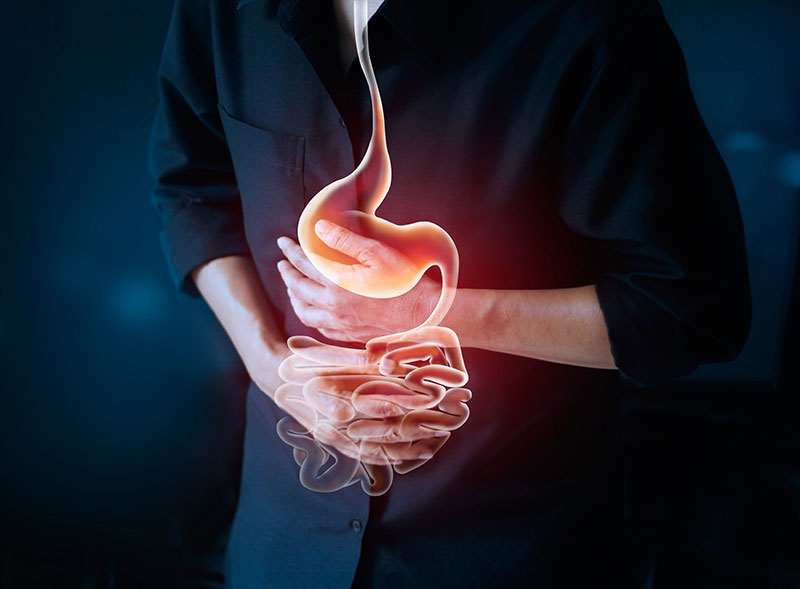Join me as we delve deeper into the profound connection between food intolerances, sensitivities, and anxiety, unlocking the potential for true well-being. Understanding the complex interplay between our digestive system and mental health is essential for anyone seeking answers to anxiety symptoms related to food intolerances and sensitivities. Let’s explore the science, personal experiences, and transformative possibilities that lie at the intersection of our gut and our minds.
Unravelling the Personal Journey: Connecting Food Intolerances and Anxiety
“What affects our gut affects our mind“ – I grappled with this concept for years, especially after witnessing the remarkable changes in my son’s behaviour when we eliminated gluten, sugar, and lactose from his diet. Not only did his cognitive skills improve, but a significant reduction in anxiety became evident.
The Gut-Brain Connection: Exploring How Foods Impact Behavior and Anxiety
Motivated by this transformative experience, I embarked on a quest to unravel the mysteries of the gut-brain connection. After a decade of study, I discovered numerous instances where individuals experienced behavioural changes by eliminating specific foods from their diet.
Immune System Response to Food: Understanding the Triggers for Anxiety
Let’s look into how our immune system responds to food. When we consume food, T cells, a type of white blood cell, are activated upon encountering harmful substances known as antigens. Once activated, T cells release chemicals like cytokines, chemokines, and perforin to combat the perceived threat.
Mast cells, another type of white blood cell found throughout our body’s tissues, play a role in releasing inflammatory mediators such as histamine and serotonin. These mediators communicate messages between nerve cells and contribute to our body’s response to negative reactions.
The Complexities of IgG Reactions: Identifying Hidden Culprits of Anxiety
Interestingly, our body’s response to fear mirrors its response to foods that trigger mast cell reactions. Over time, the body cannot distinguish between the response to food and external fear, resulting in persistent anxiety.
Investigating Their Role in Allergies and Anxiety
Understanding the chemical responses to threats is crucial. It is essential to pay attention to the foods that elicit an overactive response from our immune system, leading to an attack on our weakest organ system.

From Fear to Anxiety
Beyond typical allergies triggered by IgE responses, we must consider IgG responses, which generate a slower immune reaction that can take years to develop. Identifying the specific foods responsible for this response can be challenging.
Prolonged exposure to fear can lead to anxiety over time, and this fear isn’t limited to external sources. Consider a child who becomes terrified of monsters lurking outside their window or under their bed. Affirmations like these can instil anxiety in children, causing fear of the dark or even enclosed spaces..
How Food Intolerances and Sensitivities Altered Anxiety
Over the past four years, I have identified numerous food intolerances within myself, and eliminating those foods has resulted in a significant reduction in my anxiety levels. Curiosity led me to experiment with desensitisation, addressing not only food intolerances but also environmental sensitivities such as perfumes, dust, paints, grass, trees, and pollens. To my amazement, I experienced a sudden and revolutionary change in my anxiety levels.
Desensitising to these sensitivities completely eliminated my anxiety.
The Science of the Gut-Brain Axis
Through my research, I have uncovered the scientific underpinnings that link food intolerances and sensitivities to a cascade of physiological and biochemical reactions in the body. These reactions directly influence our mental state, contributing to anxiety.

Recommended Reads on the Gut-Brain Axis
- I found some interesting books that you might like to read on the gut-brain axis. Michael Gershon, MD, a professor of medicine and cell biology at Columbia University, wrote the book “The Second Brain: A Scientific Understanding of Gut Instincts, Emotions, Pain, and Health“.
- Giulia Enders, a German doctor and author, explores the intricacies of our digestive system in “Gut: The Inside Story of Our Body’s Most Important Organ“.
- Lastly, David Perlmutter, MD, a neurologist, delves into the fascinating connection between gut microbes and brain health in his book “Brain Maker: The Power of Gut Microbes to Heal and Protect Your Brain—for Life“.



